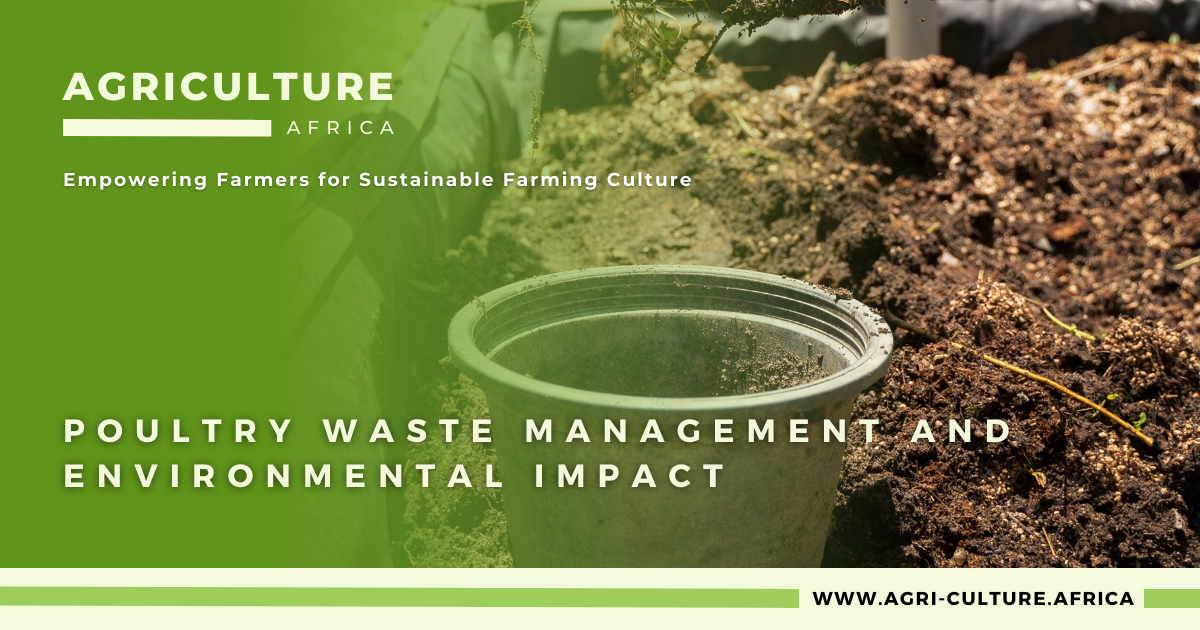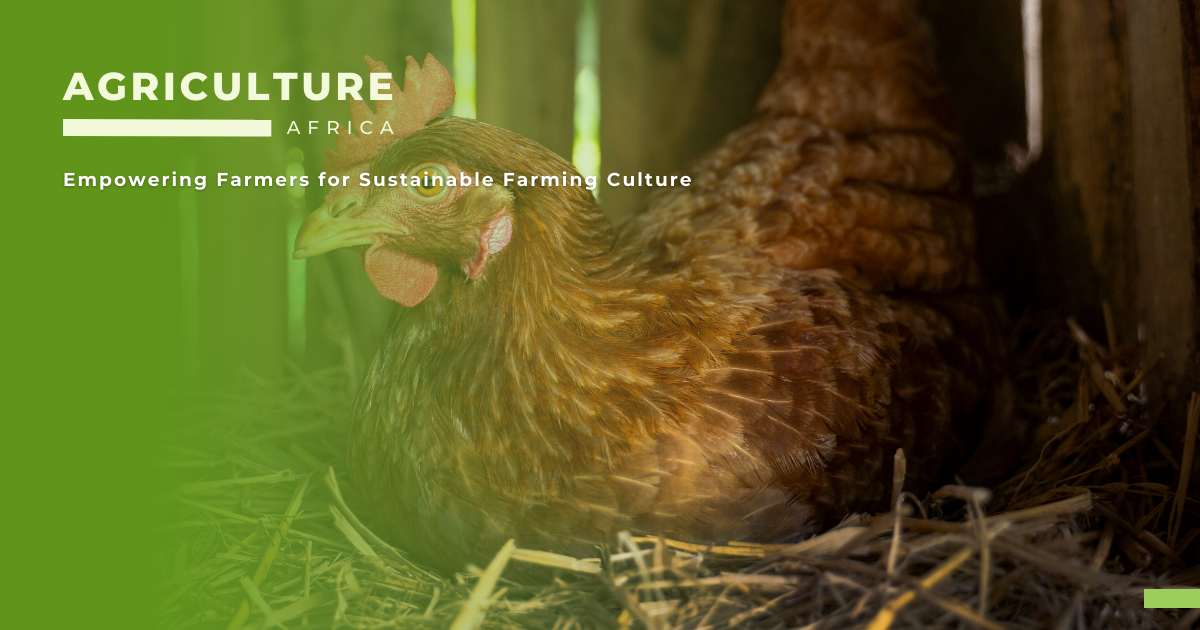Empowering African Farmers for Sustainable Farming Culture

Poultry waste management is an important part of poultry farming in Africa, and it plays an important role in reducing the environmental impact of poultry farming. Proper manure, nutrient, and water quality management practices can reduce the environmental impact of poultry farming by protecting water sources, improving soil fertility, and lowering greenhouse gas emissions. Adopting these waste management practices can help African poultry farmers reduce their environmental footprint while increasing their profitability.
Adopting sustainable waste management practices is critical for addressing the environmental impact of poultry farming in Africa. To ensure the sustainable production of poultry meat and eggs while protecting the environment and public health, poultry waste management practices should be integrated into the overall management of poultry farms. Adoption of these practices will necessitate poultry farmer education and training, regulatory support, and investment in waste management infrastructure. By addressing the environmental impact of poultry farming, we can ensure the long-term production of poultry products while also protecting African communities’ health and well-being.
The environmental impact of poultry farming in Africa is significant, affecting the quality of the air, water, and soil. Poultry waste is high in nutrients like nitrogen and phosphorus, which are good for plants but can cause eutrophication of water bodies. When poultry waste is not properly managed, it can contaminate water sources, causing waterborne diseases and harming aquatic life. Poultry waste disposal can also cause soil degradation, resulting in decreased soil fertility and crop yields.These wastes, if not properly managed, can have serious environmental consequences, including:
Water Pollution: When poultry waste enters streams, rivers, and lakes, it contains high levels of nutrients such as nitrogen and phosphorus, which can cause eutrophication. This can cause algae to grow, lowering dissolved oxygen levels and killing fish and other aquatic life.
Poultry waste emits gases such as ammonia, hydrogen sulphide, and methane, which contribute to air pollution and greenhouse gas emissions. Ammonia emissions can also be harmful to human and animal health.
Soil Degradation: Too much poultry waste applied to agricultural fields can cause soil degradation and nutrient imbalances. This has the potential to reduce soil fertility, reduce crop yields, and increase the risk of soil erosion.
To reduce the environmental impact of poultry farming, proper waste management is essential. In Africa, the following waste management practises are commonly used:
Manure management, which includes the collection, storage, and disposal of poultry waste, is an essential component of poultry farming. By preventing water contamination and improving soil fertility, proper manure management practises can reduce the environmental impact of poultry farming. Some manure management practises that can be used in poultry farming are as follows:
Another important aspect of poultry waste management is nutrient management, which involves the regulation of nutrient inputs and outputs to prevent environmental pollution. Some nutrient management practises that can be used in poultry farming are as follows:
Another important aspect of poultry waste management is water quality, which includes protecting water sources from pollution. Some water quality management practices that can be used in poultry farming are as follows:
